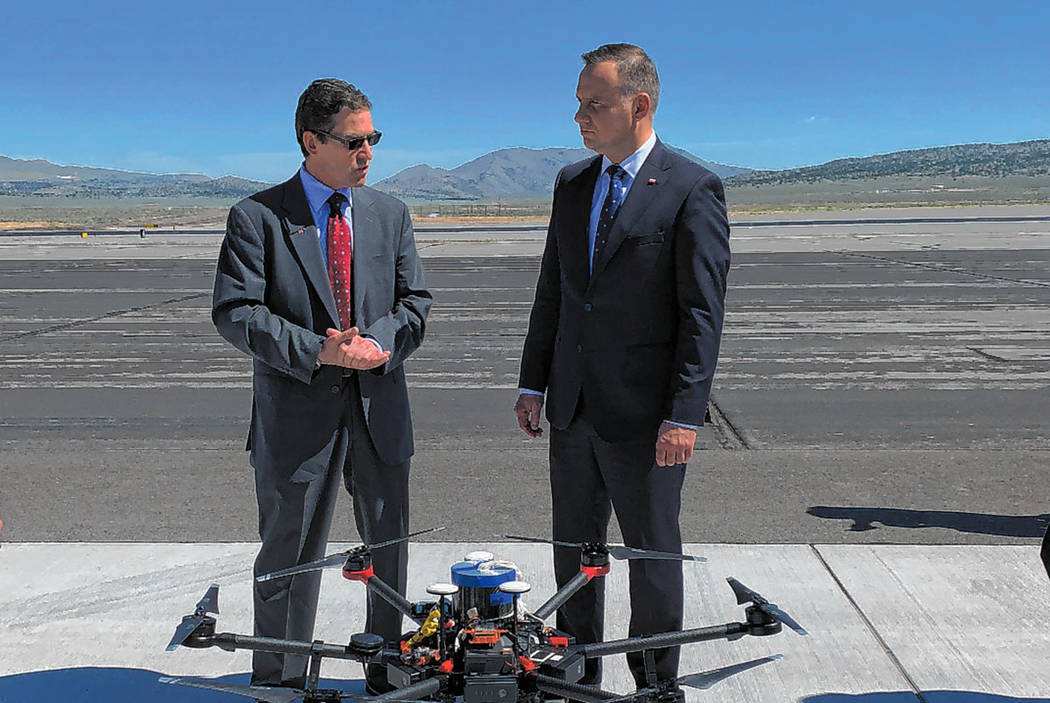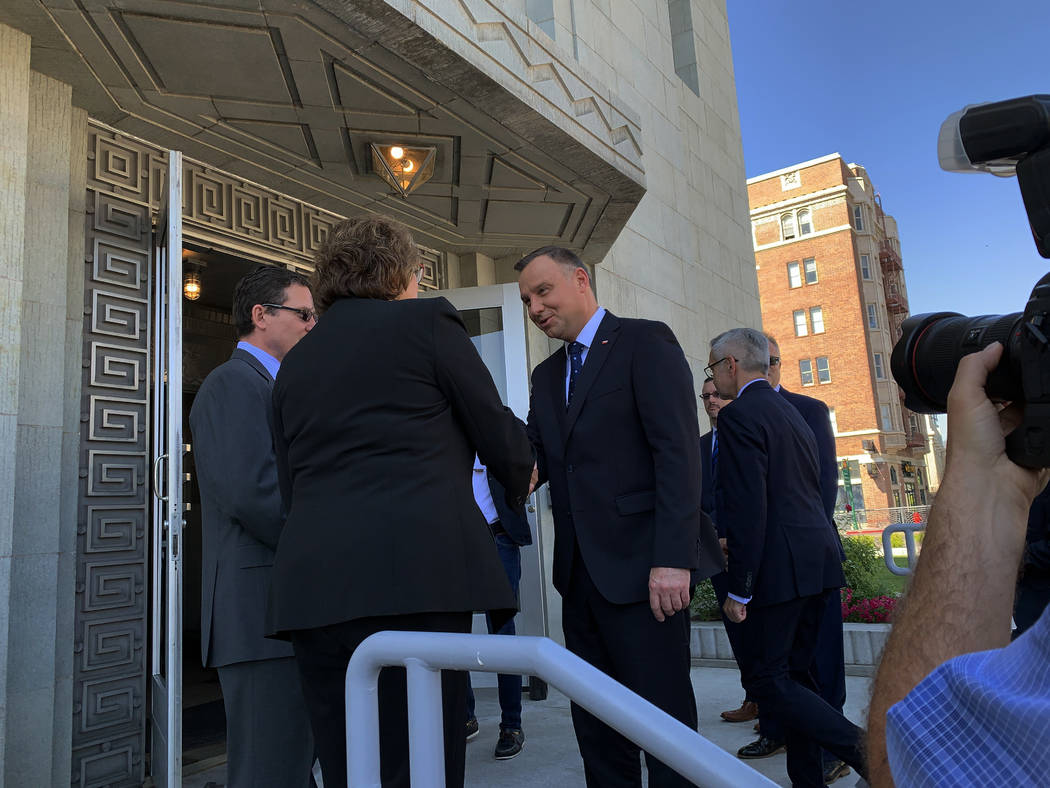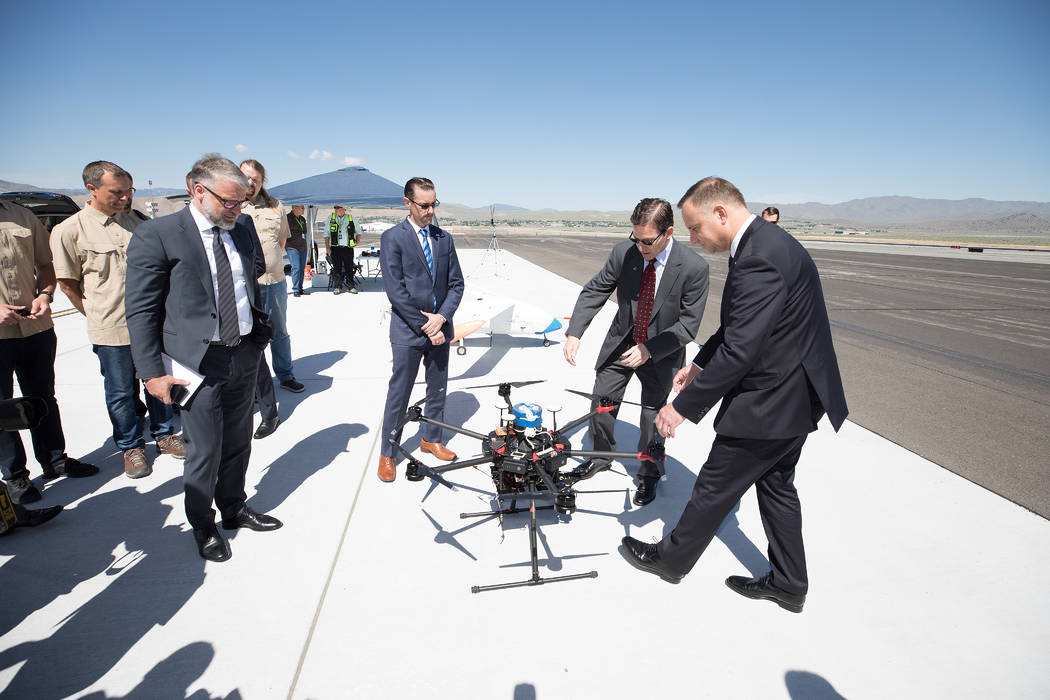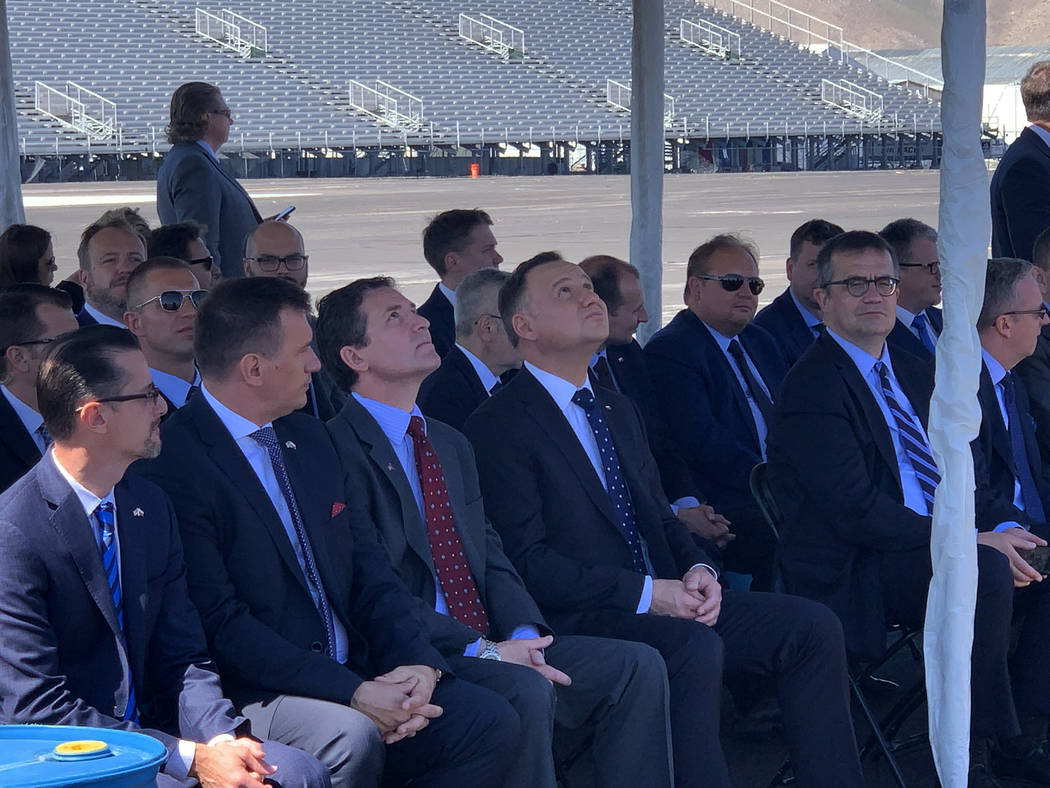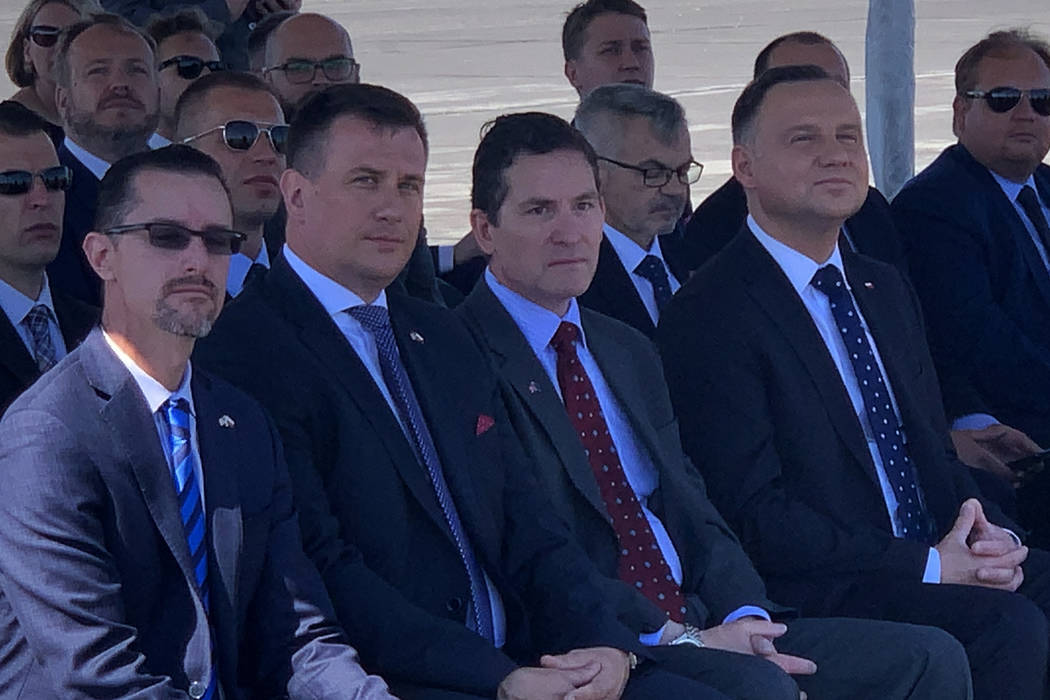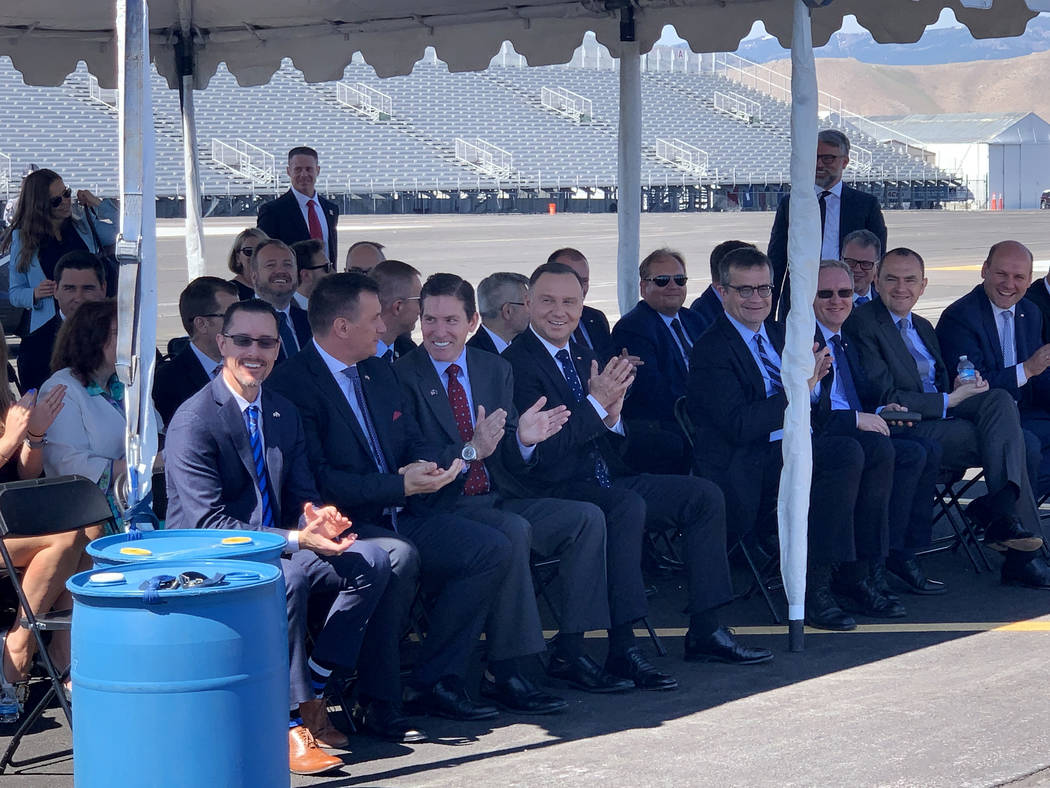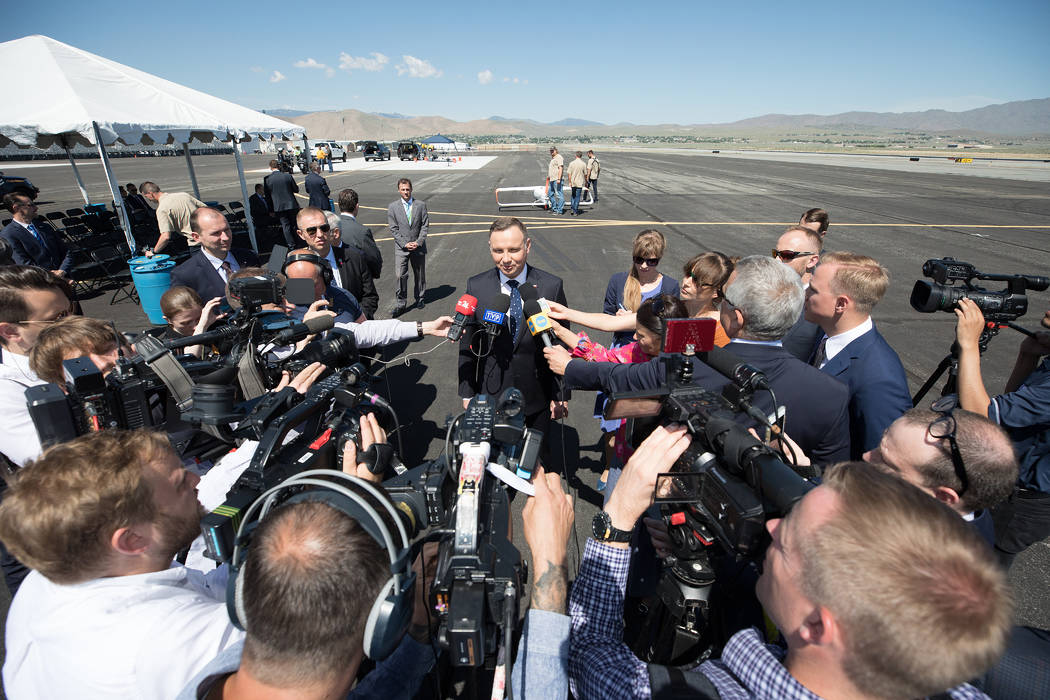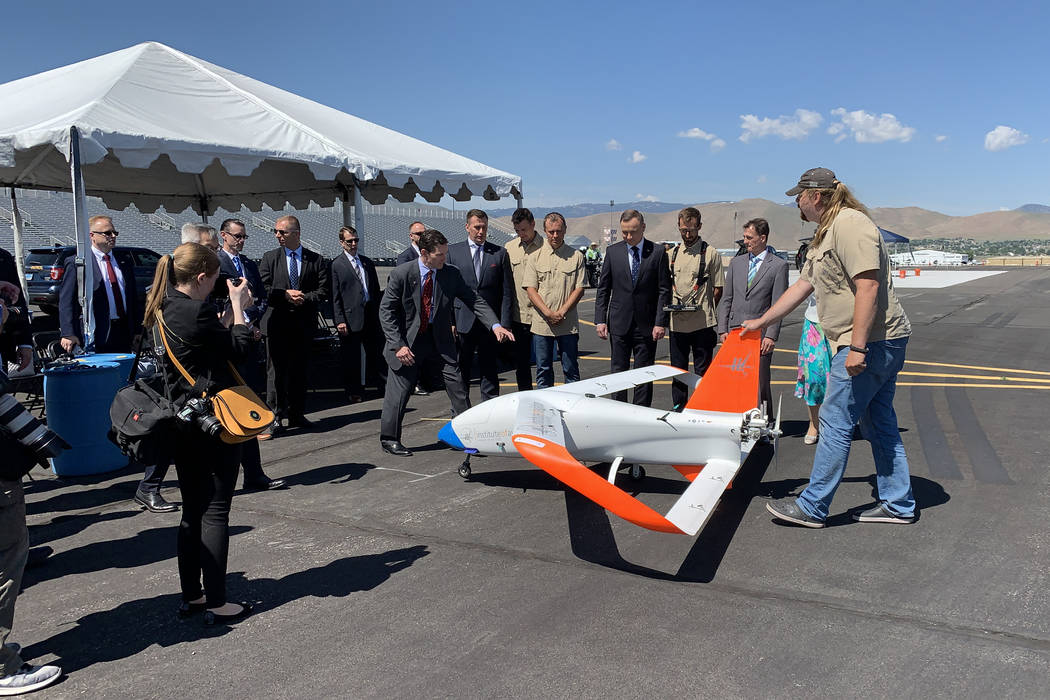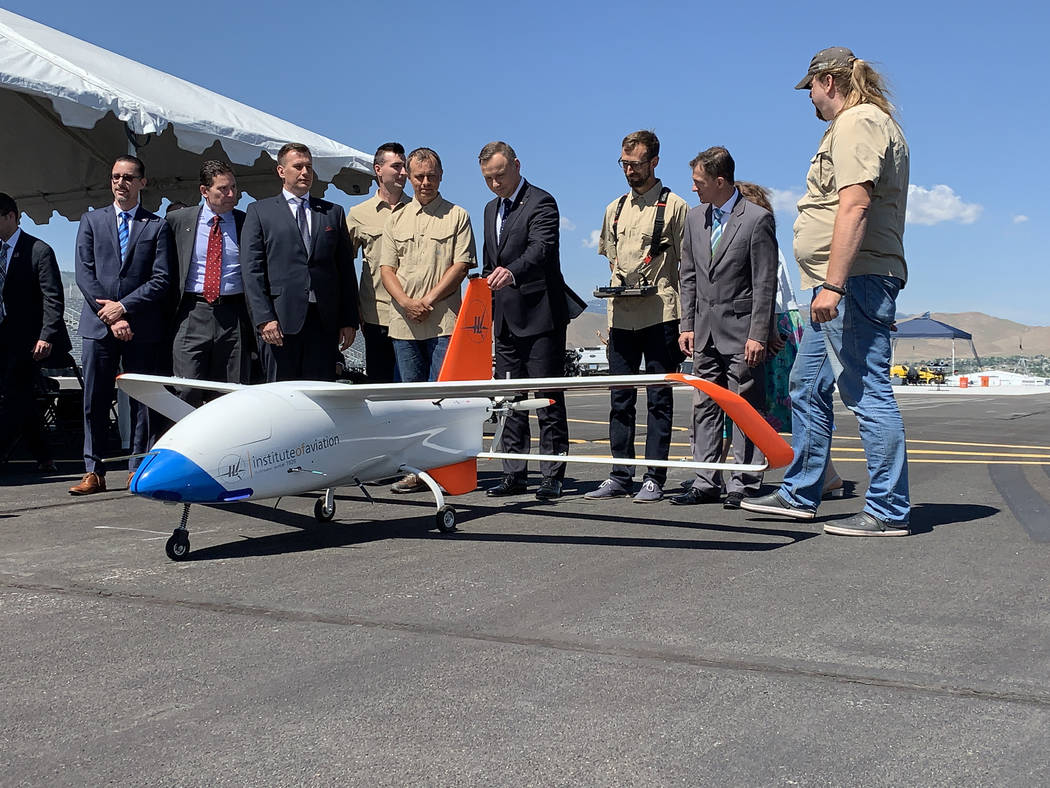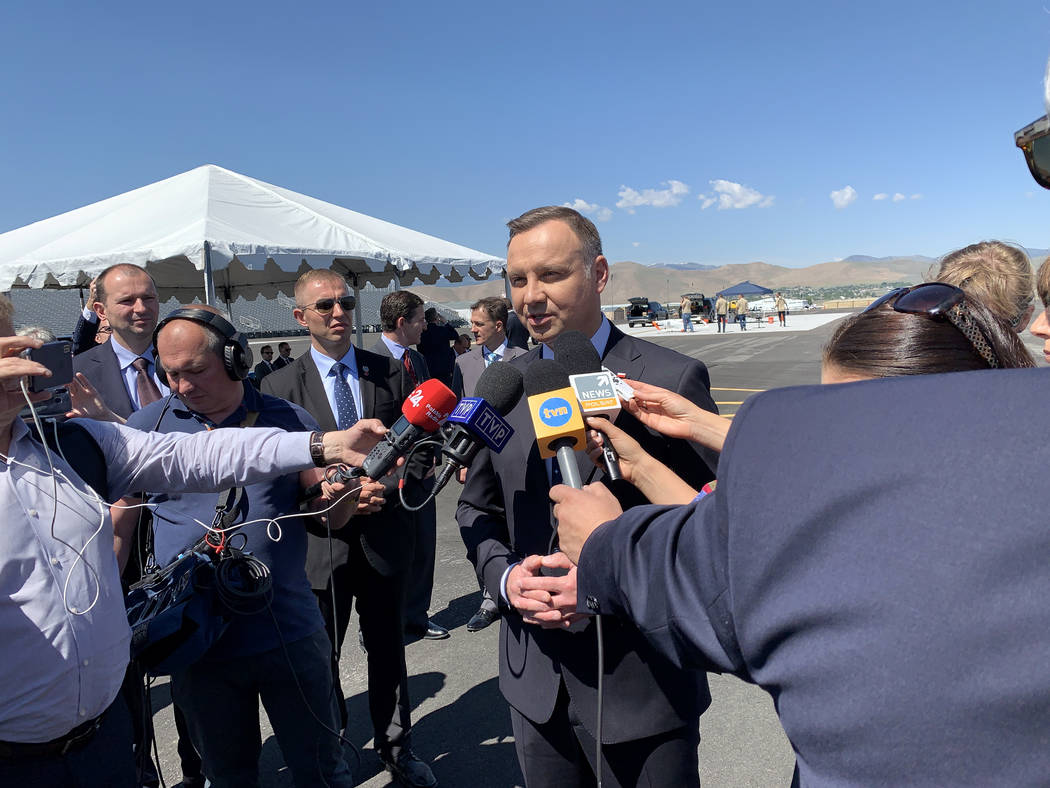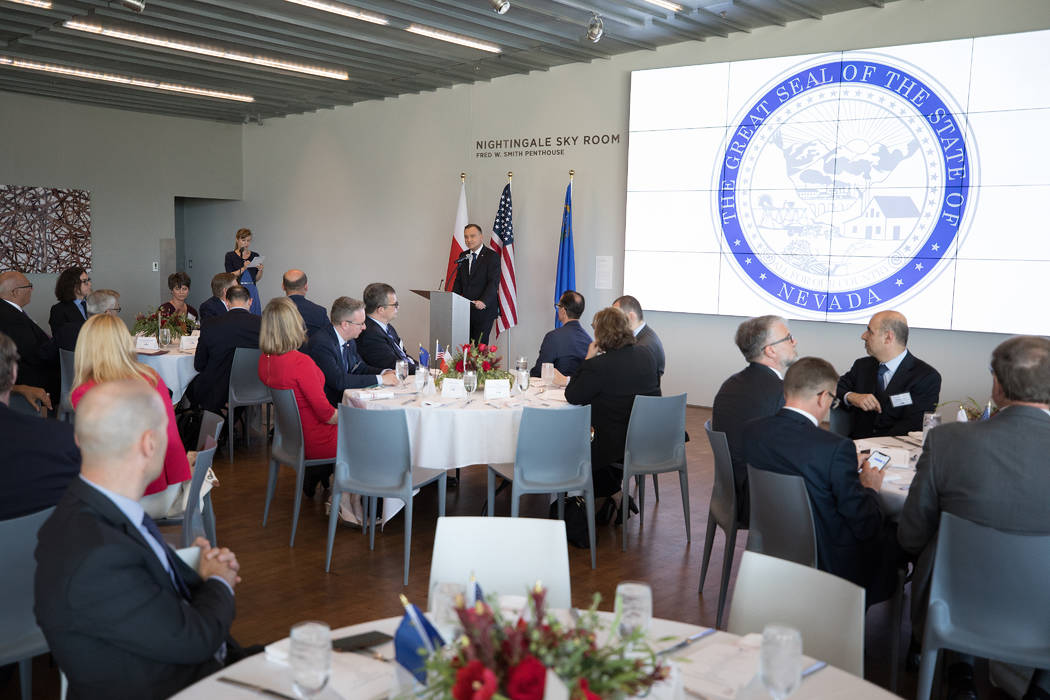Polish president visits Reno, praises drone testing partnerships
RENO — President Andrzej Duda of Poland, in the first visit to Nevada by a head of state from the European Union, stopped in Northern Nevada’s largest city Saturday as part of a six-day U.S. trip that included displays of drone technology.
The trip also marked the signing of new agreements to increase economic cooperation between interests in the two countries.
Duda and his delegation were joined in downtown Reno midmorning by city and state officials to observe demonstrations of drone testing led by the Nevada Institute of Autonomous Systems.
The nonprofit corporation runs drone testing and development programs under an FAA program that designated Nevada as one of six official test sites for unmanned autonomous systems.
The test work on drones is what attracted interest from Poland via connections forged through the Governor’s Office of Economic Development.
The Polish visitors on Saturday saw a display of drones working in an urban environment from a vantage point in the old Reno Post Office, then traveled north a dozen miles to the Reno-Stead Airport to see the flight of a larger Polish-made drone.
“Perhaps it’s difficult to imagine today how many applications there are in the future for this kind of transportation,” the president said, speaking through a translator, after viewing the second flight. “This is an autonomous kind of communication. And this is what Polish engineers are working on here today. They’re working in partnership with American engineers.”
Envisioning the future
He noted that the work being done in Nevada focuses on managing what is expected to be the explosion of drone traffic in years to come.
“If there are hundreds of thousands of drones in the cities, and if they carry out all sorts of tasks, then we’ll face the kind of traffic that you can see on the streets today,” he said. “But this traffic will happen in the air.”
After the demonstration, the president was welcomed by Lt. Gov. Kate Marshall during a luncheon at the Nevada Museum of Art in Reno, where he made additional remarks and witnessed the signing of new cooperation agreements. Later, four University of Nevada, Reno students and four Polish startups operating in Nevada were to make presentations.
The president and his delegation arrived Friday night in Reno from Houston, where Duda toured the MD Anderson Cancer Center, with earlier stops in Louisiana to meet Energy Secretary Rick Perry at a liquid natural gas facility. Poland is increasing natural gas purchases from the U.S. to lessen its dependence on gas from Russia.
Starting his official U.S. visit Wednesday, he met with President Trump at the White House and signed a new defense agreement that will see an additional 1,000 U.S. troops stationed in Poland on a rotating basis. The White House visit also featured a flyover of an F-35 fighter jet, a nod to Poland’s interest to buying the warplanes from the U.S.
Interviewed by traveling Polish media at the airport demonstration Saturday, Duda responded to criticism in the U.S. media that Poland was trying to buy U.S. friendship with the possible F-35 deal, dismissing it as “politics.”
“Of course there are different friendships,” he said, speaking through a translator. “But also there is an element of loyalty in political cooperation which is very important, an element of honesty. … Many times in our history have we been deceived, unfortunately, with very bad experiences here.”
“But so far my experience in cooperation with President Donald Trump,” he added, “has been good, and all those talks that we are conducting result in very concrete effects.”
Fostering partnerships
Duda’s Reno visit precedes Monday’s start of the weeklong Nevada Global Summit, highlighting similar international business ventures in the state that help both domestic and overseas companies.
“Anytime that we can foster international partnerships, we can build resiliency and strengthen Nevada’s economy,” said Kris Sanchez, GOED interim executive director. “You have to have pathways for companies to operate. It’s very difficult, very costly for a company to pick up and go to a foreign country. So what we’ve done is we formalize the process going both ways.”
That process, he said, “mitigates risk, it helps reduce costs, and for small businesses and for companies that are just newly exporting, those factors matter greatly.”
Contact Bill Dentzer at bdentzer@reviewjournal.com or 775-461-0661. Follow @DentzerNews on Twitter.



